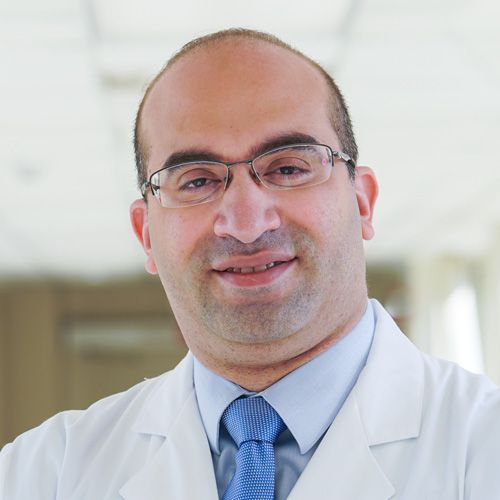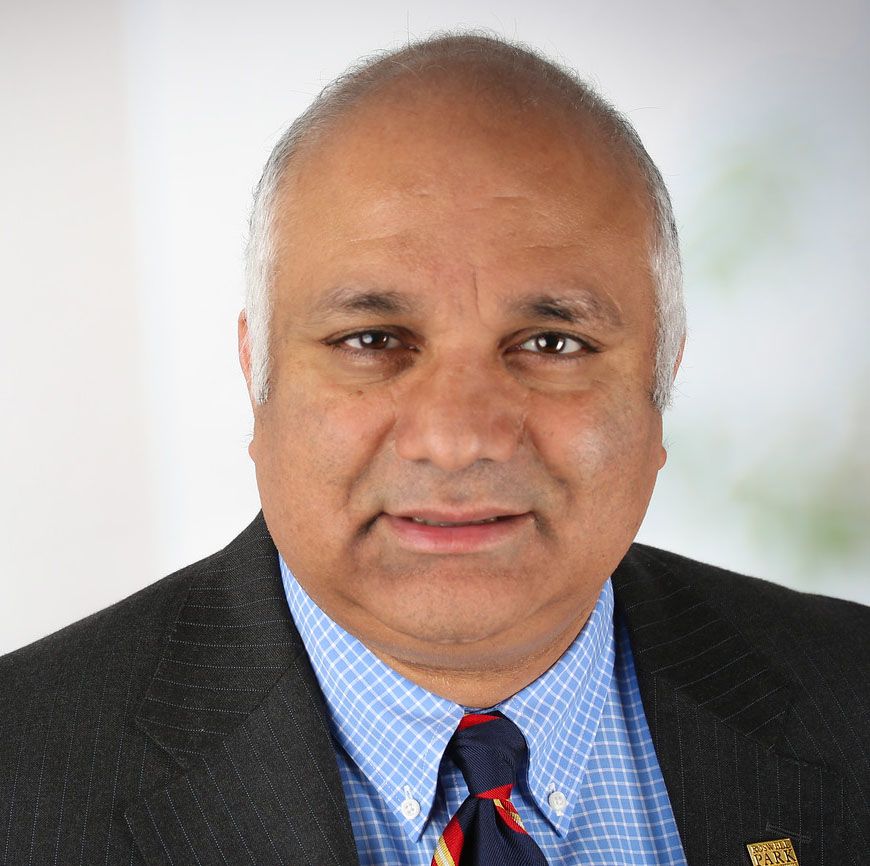Roswell Park study documents the effect on treatment of localized prostate cancer
- Adherence to treatment guidelines shown to result in better patient outcomes
- More patients choosing active surveillance when recommended
- Reduction seen in unnecessary radiation treatment
BUFFALO, N.Y. — Research from Roswell Park Comprehensive Cancer Center shows that following the National Comprehensive Cancer Network (NCCN) clinical practice guidelines for the diagnosis and treatment of cancer results in better outcomes for patients — but adherence to the guidelines depends on where the patient is diagnosed and treated and what type of cancer is involved.
The team’s research reveals that case review by a panel of specialists who follow those guidelines for treating localized prostate cancer has resulted in better adherence by community urologists. The study, “Impact of an NCCN-Compliant Multidisciplinary Conference on Treatment Decisions for Localized Prostate Cancer,” was led by principal investigator Khurshid Guru, MD, Chair of the Department of Urology and Director of Robotic Surgery at Roswell Park. The new research has been published in the Journal of the National Comprehensive Cancer Network.
First author Ahmed Aly Hussein Aly, MD, of Roswell Park’s Department of Urology, explains that the study looked at data from 1,164 patients with localized prostate cancer — cancer that had not spread outside the prostate — who sought a second opinion at the cancer center between 2009 and 2019. All such cases are reviewed by Roswell Park’s multidisciplinary Localized Prostate Cancer Conference (LPCC), whose members include urologists, radiation oncologists, pathologists and patient advocates.
“We present every single case, whether it’s simple or complicated,” says Dr. Aly. “With a multidisciplinary team, you have all the specialists available at the same time, in the same room, discussing what would work best for a specific patient.
“The best option for one person may not be the best option for another, even if they have a similar disease. We look at many things — for example, whether the patient has significant family history of prostate cancer or other cancers, any lower urinary tract symptoms, whether he wishes to father children, and other factors.”
After case review by the multidisciplinary review panel, each patient receives a letter with the panel’s recommendations for treatment, and the panel follows up later to find out which treatment option the patient ultimately chose.
Preventing overtreatment
The LPCC review panel follows the NCCN Guidelines for Prostate Cancer and NCCN Guidelines for Prostate Cancer Early Detection, which are based on the latest scientific evidence and updated regularly as new data indicate the need for change. They are designed to not only provide the best treatment recommendations based on such factors as the patient’s age and the stage of the cancer but also to help prevent overtreatment.
That issue is especially important when it comes to prostate cancer: while it is the second leading cause of cancer-related death in American men, most cases of prostate cancer will not cause symptoms or lead to death. “Treating ‘clinically insignificant’ cancers can lead to serious and unnecessary long-term side effects, such as incontinence, erectile dysfunction and rectal bleeding, which negatively impact a patient’s quality of life,” says Michael Kuettel, MD, PhD, MBA, Chair of Roswell Park’s Department of Radiation and a member of the NCCN Prostate Cancer Guidelines Panel.
Data revealed that during the 10-year period included in the study, treatment recommendations made by community urologists became more closely aligned with Roswell Park’s LPCC (NCCN Guidelines-compliant) recommendations, from 65% agreement in 2009 to 86% agreement in 2019 — a promising trend, given that a physician’s recommendation has the greatest impact on a patient’s treatment decision.
Dr. Guru says that trend toward agreement resulted in fewer patients undergoing unnecessary testing and treatment, with associated added costs and side effects that can significantly impact the patient’s quality of life.
He adds that the review panel’s second reviews have also highlighted for both physicians and patients the importance of considering active surveillance as an option when it is appropriate. Active surveillance involves monitoring the cancer closely without starting treatment right away. Treatment can begin later if the cancer begins to grow faster, but in the meantime, the patient avoids any adverse side effects.
“The study data show that active surveillance now represents a significant portion of the treatments that patients choose,” says Dr. Guru.
Less-radical treatment decisions
How did recommendations from community practices and the LPCC review panel compare with the treatments patients ultimately chose?
The number of patients who chose to receive the treatment recommended by their community urologists rose from 59% in 2009 to 70% in 2019, for an overall average of 65%. For specific treatments, agreement was highest (80%) for active surveillance and lowest (26%) for radiation therapy. Among patients categorized as having very low to low-risk disease, 83% opted for active surveillance over their community urologist’s recommendation of radiation therapy; the same decision was made by 50% of patients with intermediate-risk disease.
During the same period, 92% of patients chose to follow the NCCN Guidelines-compliant treatment recommendations of the LPCC, with the percentage rising from 89% in 2009 to 94% in 2019. Agreement was highest for active surveillance (95%) and lowest for radiation therapy (80%).
###
Roswell Park Comprehensive Cancer Center is a community united by the drive to eliminate cancer’s grip on humanity by unlocking its secrets through personalized approaches and unleashing the healing power of hope. Founded by Dr. Roswell Park in 1898, it is the only National Cancer Institute-designated comprehensive cancer center in Upstate New York. Learn more at www.roswellpark.org, or contact us at 1-800-ROSWELL (1-800-767-9355) or ASKRoswell@RoswellPark.org.
Rebecca Vogt, Media Relations Specialist
716-845-4919; rebecca.vogt@roswellpark.org


